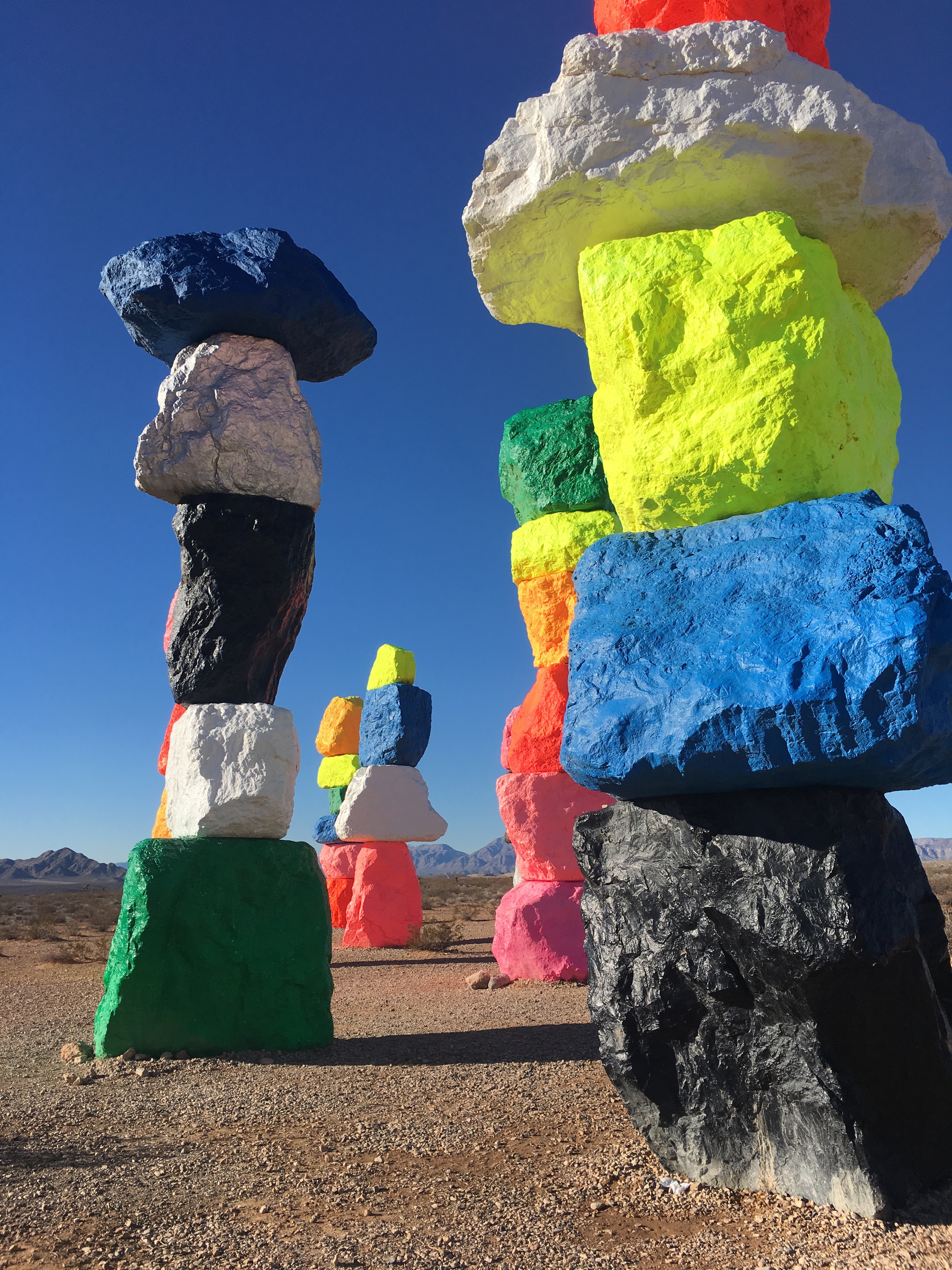 A good friend drove me out to see Seven Magic Mountains by Ugo Rondinone, located near the Jean Dry Lake south of the Las Vegas Strip. The work consists of seven stacks of massive limestone rocks. Each stack is comprised of 3-6 rocks that stand between 30 and 35 feet tall.
A good friend drove me out to see Seven Magic Mountains by Ugo Rondinone, located near the Jean Dry Lake south of the Las Vegas Strip. The work consists of seven stacks of massive limestone rocks. Each stack is comprised of 3-6 rocks that stand between 30 and 35 feet tall.
Each rock is coated with a different florescent paint color. The experience and the work are significant. The contrast between the desolate Mojave Desert and the cluster of lively monuments is impactful. My favorite observation is the halo of color cast on the ground at the base of each stack. At first I thought it was over spray but quickly realized it was the sun’s light bouncing off the rock, illuminating the desert floor. I doubt this was planned when the work was conceived, which is why it brought me so much pleasure.
I took pictures of the artist statement on the information plaque so I could read it after I had time to process my own experience. I often find that what is written about a piece can diminish my appreciation of a work — which was the case here. The plaques feature two quotes from the artist that I have read several times and still have no idea what he is trying to say. I am a well-educated, open-minded art enthusiast and find this tragic.
Do we really want visitors to be confused, self-conscious and perhaps insecure when they encounter public art?
He writes “Seven Magic Mountains elicits continuities and solidarities between human and nature, artificial and natural, then and now. What centers this amalgam of contradictions is the spiritual aspiration, one that bruises, elevates and transcends.” As I read and reread this passage I am reminded of my father’s wisdom that people who have something important to say, say it clearly. Maybe we should stop trying to describe experiences that transcend our understanding with words. Why do we feel the need to fill the void with words? I just hope that the people visiting this public art piece “transcend the amalgam of contradictions” and don’t allow the written explanation to diminish their experience.

Many times, the real goal of writing is obfuscation. I often find that there is an inverse relationship between the intelligence/insightfulness of a writer, and their economy of expression. Your father had it right.